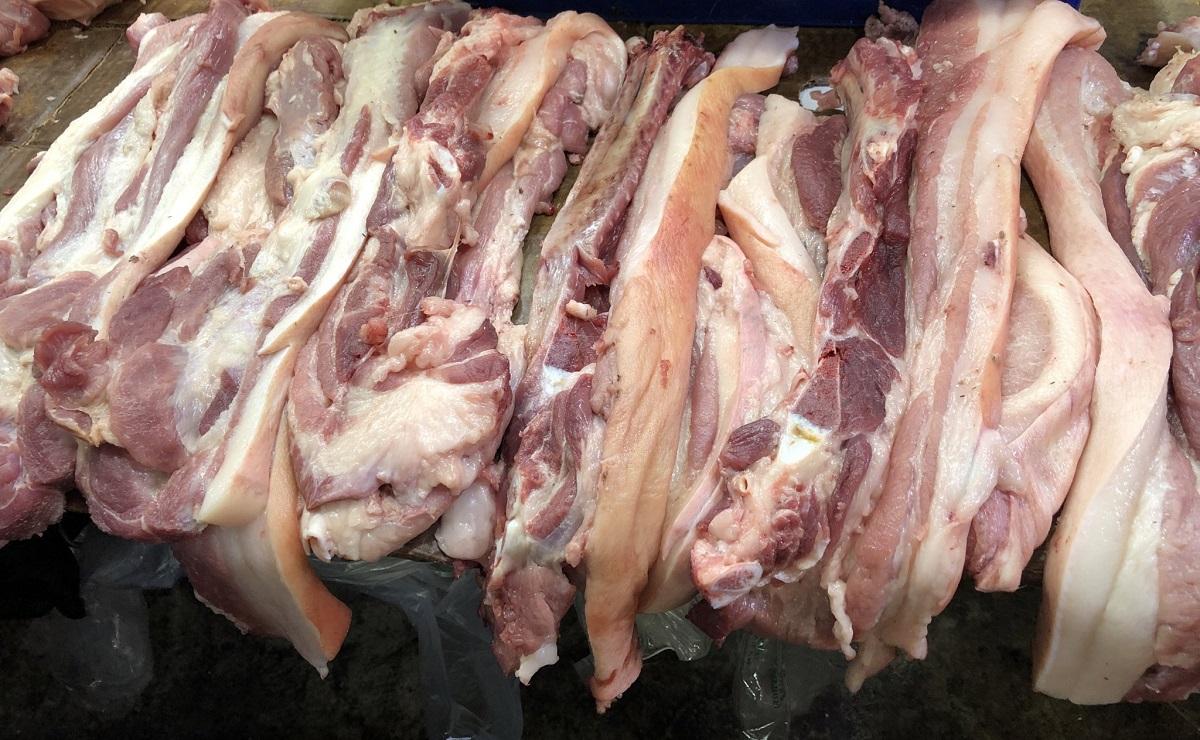Ex-BAI chief denies issuing permits to allow pork imports from ASF-hit countries

The former chief of the Bureau of Animal Industry (BAI) on Monday denied issuing permits for the importation of pork products from countries affected by African swine fever (ASF) despite the existence of several memorandum orders banning the issuance of such permits.
During the Senate committee of the whole hearing, former BAI director Ronnie Domingo responded to the earlier allegation of Senator Panfilo Lacson that it was during Domingo's leadership at the BAI that sanitary and phytosanitary import clearance (SPSIC) were supposedly still issued, allowing pork imports from ASF-infected countries like Belgium, Hungary, Germany, and China to come in.
This, even as then-Agriculture Secretary Emmanuel Piñol had issued several memorandum orders to not allow the entry of pork imports from these countries.
According to Domingo, who is now assigned at the Philippine Carabao Center, the permits have been issued even before there was an outbreak of ASF in these countries.
"Hindi kami nag-issue ng SPSIC sa mga bansa na may ASF. 'Yung sinasabi na in-issue namin sa mga bansa na nai-ban na ay 'yun 'yung mga shipment na merong aprubadong SPSIC bago pa magkaroon ng ASF 'yung mga bansa na yun," he said.
(We did not issue SPICs to countries with ASF. The allegation that we issued the permit to banned countries, those are for shipments with already approved SPSIC even before these countries had ASF outbreaks.)
"Late siya dumating sapagkat isasakay 'yan sa barko, pagdating mula doon sa origin hanggang sa Pilipinas mga two to four months. So 'yan ang nirereport nila bakit may pumapasok pa. Mga tail-end arrivals 'yan na mga valid importations na may SPSIC," he added.
(The imports came late because they had to be carried by ships, and it will take two to four months before they reach the Philippines from the origins. So these are tail-end arrivals with valid importations with SPSIC.)
Domingo said ASF in the Philippines may have come from smuggled pork products.
The Bureau of Customs (BOC), nevertheless, stated that personnel from the BAI, the Department of Agriculture, and the National Meat Inspection Service are involved in the inspection of imported pork products.
BOC commissioner Rey Leonardo Guerrero said the commission has limited capacity to inspect imported pork products.
"Ang basehan namin sa pag-iinspect nitong mga meat and pork importations ay 'yung mga permit din na binibigay ng DA. SPSIC kung saan nakalagay anong klaseng karne ang iniimport, saan ang pinanggalingan," he said.
(Our basis in inspecting these meat and pork importations are the permits given by the DA. These are SPSICs where the kind of imported meat and their point of origins are indicated.)
The investigation on the food security crisis stemmed from the information received by Lacson from "high-placed" sources alleging that there is "tongpats" or padded costs of P5 to P7 per kilo of pork import prevailing at the current importation setup.
He said the padded costs may significantly increase if the tariffs on pork imports are reduced and the minimum access volume allocation is increased.
Agriculture Secretary William Dar has denied involvement in the said scheme.
President Rodrigo Duterte, on the other hand, issued Executive Order 128 reducing the tariff rates for imported pork meat to 5% to 20% from 30% to 40% for a year.—AOL, GMA News



